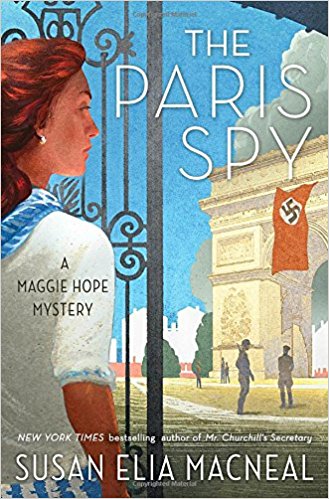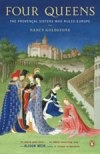I recently got some fascinating new insights into the Declaration of Independence through Revolutionary Summer: The Birth of American Independence by Joseph J. Ellis.
For instance, Thomas Jefferson was chosen as author by default. He was the third choice, actually. The drafting committee wanted Benjamin Franklin, who was already rather a big-name celebrity in America as well as in England. But Franklin declined, saying he hated writing for a committee.
They turned next to John Adams, a fiery orator for ‘the Cause’ in the Continental Congress. But Adams recused himself, concerned that his vocalizing had caused him to be seen as a ‘radical.’ Adams wisely knew that they needed someone who was seen as a moderate to sway those who still hoped for a reconciliation with the Crown.
At the time the members of the Declaration’s drafting Committee of Five did not realize the importance of the project. Franklin, Adams, Roger Sherman, Robert Livingston, and even Jefferson were each anxious to return to their home states, for the debates over state constitutions. These negotiations were considered to be the real grass-roots action. As Jefferson holed up in Philadelphia laboring over the Declaration, he yearned to be at the Virginia General Assembly.
Still, Jefferson poured his heart and soul into the Declaration of Independence, creating what was not only an historic legal document, but also a masterpiece of writing. The second sentence has been called “one of the best-known sentences in the English language” by literary theorists.
We hold these truths to be self-evident, that all men are created equal, that they are endowed by their Creator with certain unalienable Rights, that among these are Life, Liberty and the pursuit of Happiness.
At the time, however, Jefferson’s genius wasn’t quite recognized and his opus was heatedly critiqued and edited by the Continental Congress. Jefferson “sat silently and sullenly throughout the debate,” which sounds a bit like the writer’s workshop from hell. “At one point, Franklin leaned over to console him, reminding Jefferson that this was the reason he never wrote anything that would be edited by a committee.” Ultimately, several large sections were cut, and it was this revised version that was printed and circulated throughout the country.
Ellis points out that almost more than the existence of the Declaration itself, Jefferson’s famous closing words, “our lives, our fortunes, and our sacred honor,” became a rallying cry and a pledge that spurred on the revolution.
Still, Jefferson became a rather obsessed with his original draft. “He devoted considerable energy to making copies of his unedited version of the document, restoring the sections deleted by the congress, placing their revisions in the margins so as to differentiate his language from the published version.” While he sounds like an editor’s nightmare (from my experience at magazines, it’s usually the writers who resist editing that need it the most), the congress took out some very key elements.
First, they deleted all references to slavery and also to Jefferson’s proposal to end the slave trade, which he roundaboutly blamed on George III. This ominous omission still haunts us today. They also cut a thorough anti-king argument which Jefferson modeled after the British Declaration of Rights, a seminal act which set precedent by limiting the Crown’s power, reinforcing Parliament’s authority, and outlining the rights of petition and free speech during England’s Glorious Revolution. This seems a most genius way for Jefferson to use Parliament’s own words and laws to reinforce the Americans’ rights.
They also rejected Jefferson’s doctrine of “expatriation,” in which he theorized the that since the colonists had come to America “at the expense of our own blood and treasure” (with no financial or other support of Great Britain), they were not beholden to that country. There were several other deletions including a tirade against George III for sending mercenaries to attack the colonists. In all, I tend to agree with Jefferson on many of his points. Then again, brevity is also important in these matters, especially when copies were made by hand. You can read Jefferson’s unedited version here.
 Every writer has known that mixed emotional jumble of having hard-wrought words deleted or rearranged. Often, however, a writer can find a strange satisfaction and even appreciation in this transformation. Not so for Jefferson. As he grew old and the country he helped found took shape, he grew less fixated on his version of the Declaration but never really got over it.
Every writer has known that mixed emotional jumble of having hard-wrought words deleted or rearranged. Often, however, a writer can find a strange satisfaction and even appreciation in this transformation. Not so for Jefferson. As he grew old and the country he helped found took shape, he grew less fixated on his version of the Declaration but never really got over it.
Ellis, however, defends Jefferson on this point. “At that time, he came off as a rather self-absorbed young man, though his early recognition that the language of the Declaration mattered a great deal proved to be prescient.”
Revolutionary Summer: The Birth of American Independence, by Joseph J. Ellis
The U.S. Declaration of Independence
Check Out WordHits on Facebook















